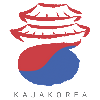Korean Lessons ᚛ Level 3 - Korean for Beginners #2 (Lessons 61 to 90) ᚛ Lesson 73 - Nominal phrases in Korean [-(이)요]
Nominal phrases in Korean [-(이)요]
Up till now, all of the sentences that we've seen end with a verb. However, like in English, it is of course possible to respond with a phrase that doesn't contain a verb, especially when responding to a question. So, the question "What is your favorite color?" can be replied to with a verb as in "It's red." or "Red is my favorite color.", but it would be more natural to simply respond "Red.", without a verb, using a nominal phrase.
In Korean, it's similar, but one must nevertheless keep in mind the politeness rules imposed by Korean culture.
Nominal phrases in the casual style
In the casual style, it's possible to respond without using a verb and without adding a mark of politeness, just like in English.
- 어떤 색 좋아해?
→ What color do you like?
- 분홍색.
→ Pink.
- 무슨 공부하고 있어?
→ What are you studying?
- 한국어.
→ Korean.
- 소나기 정말 싫어.
→ I really hate rain showers.
- 나도.
→ Me too.
Nominal phrases in the polite style
In the polite style, however, it is necessary to use the suffix of politeness -요 in the following way:
- If the noun ends in a vowel: [Noun]요
- If the noun ends in a consonant: [Noun]이요 or [Noun]요
- 뭐 마시고 계세요?
→ What are you drinking?
- 녹차요.
→ Green tea.
- 어디가 아프세요?
→ Where do you hurt?
- 허리요.
→ My lower back.
- 여기까지 얼마나 걸렸어요?
→ How long did that take?
- 1시간이요.
→ An hour.
Nominal phrases in the formal style
Learn more
Exercises
Learn more
Get two printable eBooks containing EVERYTHING you need to know to master Korean conjugation. You’ll find all the most commonly used verb forms in Korea, explanations of the many exceptions, detailed conjugation tables for 500 essential verbs and adjectives, and over 1,000 example sentences for everyday situations to help you use these verbs correctly. An absolute must-have no matter your level in Korean!
Learn more

